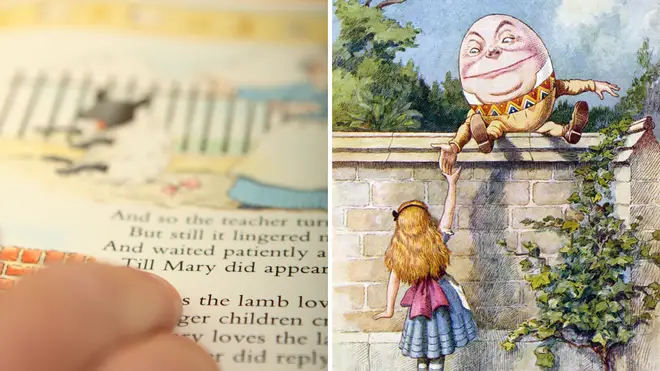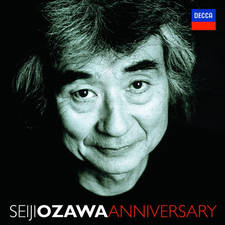10 best nursery rhymes ever written
1 December 2023, 12:30

We grow up with these songs – these lyrical and melodic earworms, that continue to be passed down the generations. Here are 10 of the all-time best nursery rhymes.
Listen to this article
We may not immediately think of them as steeped in history, but nursery rhymes are some of the most enduring, long-lasting pieces of music that we sing and play today. Some even date back as far as the 1600s in musical origin.
From vocabulary-testing tongue-twisters about cows, dishes and spoons, to calming lullabies that even Mozart drew from, nursery rhymes will represent many children’s introduction to music.
Inspire your little one with their singalong melodies and compelling stories – perhaps saving some of the darker hidden meanings for when they’re old enough...
Read more: What are the lyrics to Brahms’ famous ‘Lullaby’?
-
Twinkle Twinkle Little Star
‘Twinkle Twinkle’ is an English nursery rhyme based on a 19th-century poem by Jane Taylor, but with a French melody – the 1761 tune ‘Ah! Vous dirai-je, maman’ (‘Oh! Shall I tell you, Mama’). Music and lyrics come together to tell a comforting story that parents have used for centuries to sing their children to sleep.
It’s so popular, that even Mozart wrote his own version when he penned ‘Twelve Variations on Ah vous dirai-je, Maman’, for solo piano.
Read more: Who wrote Twinkle Twinkle Little Star and what are the lyrics?

Pianist plays 7 levels of ‘Twinkle Twinkle’ with increasing virtuosity
-
Hey Diddle Diddle
It’s quite possible that ‘Hey Diddle Diddle’, with its moon-jumping cows and spoon-wielding dishes, was always intended to be perfect nonsense.
There are several theories around its meaning, linking it to Henry VIII, Ancient Egypt and J.R.R Tolkein. Its origins are also debated – its lyrics and melody were first published an 1870 collection of nursery rhymes, but it is believed to originate from the 1700s, with many claiming it dates back even earlier, to the 16th century or further back.
What we do know, is that it’s a joyous and lively tale that continues to inspire many a young mind.
Read more: What are the lyrics and meaning of ‘Hey Diddle Diddle’?

Sesame Street: Hey Diddle Diddle
-
Humpty Dumpty Sat on a Wall
‘Humpty Dumpty’ was included in an 1870 collection of English nursery rhymes and songs, but before that the rhyme can be traced back to the 18th century.
Its subject is often portrayed as an egg, but it’s also suggested Humpty Dumpty could have been King Richard III of England, who was supposedly humpbacked and whose defeat in the 1485 Battle of Bosworth could be the ‘great fall’ referred to in the rhyme.
Read more: What are the origins of ‘Humpty Dumpty Sat on a Wall’?

Humpty Dumpty | Kids Songs | Super Simple Songs
-
Frère Jacques
A popular French nursery rhyme, sometimes known in English as ‘Brother John’, ‘Frère Jacques’ is likely about a friar who has overslept urgently needs to wake up and sound the bell for the morning prayers known as ‘Matins’.
The earliest version dates to around 1780, and it was revived for one of the great works of classical music just over a century later. For his Symphony No.1, Gustav Mahler – in typical cheery style – flipped it into F minor and used it to depict a procession of animals attending a hunter’s funeral.
Read more: What are the lyrics to French nursery rhyme ‘Frère Jacques’?

Jean-Philippe Rameau, Frère Jacques
-
Mary Had a Little Lamb
Rooted in 19th-century America, this charming tale tells of real-life Mary Sawyer, a 14-year-old schoolgirl who, encouraged by her brother, took her pet lamb “with fleece as white as snow” to school one day.
Originally penned by John Roulstone, the rhyme was first published under the name Sarah Josepha Hale, who extended the poem for her 1830 collection Poems for our Children.
Read more: What are the lyrics to ‘Mary Had a Little Lamb’?

Mary Had A Little Lamb Nursery Rhyme With Lyrics - Cartoon Animation Rhymes & Songs for Children
-
Jack and Jill
This 18th-century English nursery rhyme could refer to a generic male and female couple – but there are some darker interpretations out there.
According to a popular theory, the hill could refer to ‘Jack and Jill Hill’ in Kilmersdon, Somerset. Jack and Jill were a couple expecting a baby, and one day, Jack went out to fetch water but had an accident on the hill and died. Jill, heartbroken, passed away shortly after giving birth to their son, who was raised by the village of Kilmersdon, which erected a plaque dedicated to Jack and Jill in 2020.
Read more: What are the origins of ‘Jack and Jill’, and what do the lyrics mean?

Jack And Jill Nursery Rhymes for Children
-
The Grand Old Duke of York
One of the oldest known English nursery rhymes, thought to date back to the 1600s, this thigh-slapping ditty is a tale of ultimately ending up back where you started.
The ‘Grand Old Duke’ is widely believed to be Richard, Duke of York, whose men – sometimes up, sometimes down, but never achieving a whole lot – were defeated at the Battle of Wakefield in 1460. Richard wanted to take the throne from the Lancastrian Henry VI, and the feud between the Yorks and Lancasters is what led to the Wars of the Roses.
Read more: What is the story behind ‘The Grand Old Duke of York’?

Nursery Rhymes By Kids Baby Club - Grand Old Duke Of York
-
Row Row Row Your Boat
Music and action go hand in hand, in this gently uplifting rhyme which teaches coordination as much as it does musicality, along with the positive message of rowing on determinedly, amid the dreaminess of life.
And of course, if you see a crocodile, don’t forget to scream...
Read more: What are the lyrics and actions of ‘Row Row Row Your Boat’?

ROW ROW ROW YOUR BOAT | Classic Nursery Rhymes | English Songs For Kids | Nursery Rhymes TV
-
Incy Wincy Spider
Memorable hand actions help children visualise this fable, which began as a folk song in 20th-century US. It has been published under the title ‘Spider Song’, and with varying lyrics including ‘Itsy Bitsy Spider’ in the US and even ‘blooming, bloody’ spider in some early publications.
Much like a spider up the water spout, the rhyme has climbed its way into popular culture, particularly scary movies including the terrifying It.
Read more: What is the meaning behind Incy Wincy Spider?

Itsy Bitsy Spider | CoComelon Nursery Rhymes & Animal Songs
-
Old Macdonald Had a Farm
Arguably one of the world’s most famous nursery rhymes, this song about a fictional farmer and his band of farmyard animals originated in an 18th-century opera, where the cows said ‘boo’ instead of ‘moo’.
It’s a tongue-twisting, vowel and vocabulary-testing barrel of laughs for a child, who can add virtually any animal they like, along with their woof, croak or roar, to the musical mix.
Read more: What are the lyrics to ‘Old MacDonald Had a Farm’?

Old MacDonald in the Style of Beethoven









































